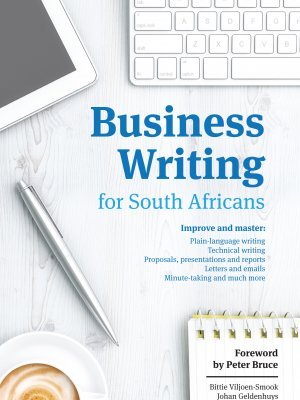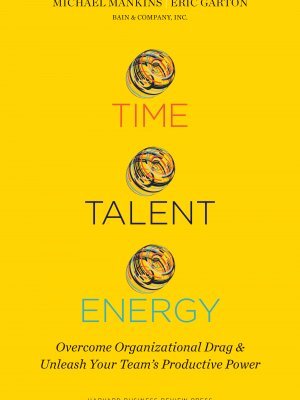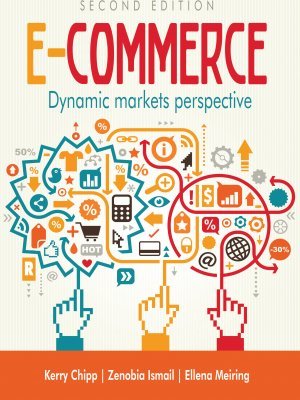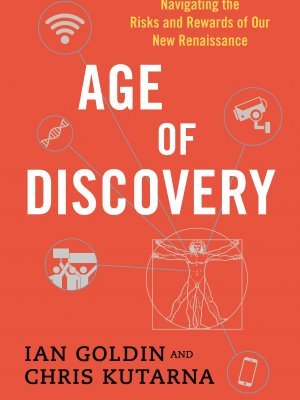Age of Discovery - Ian Goldin and Chris Kutarna - Bloomsbury - R394 from Takealot.com
With technology driving global change at a relentless pace, authors Ian Goldin and Chris Kutarna believe that the world is going through what they call a ‘New Renaissance’. Where it is leading and how it will end is uncertain, but their plea is for us to understand the process and be aware that it carries extraordinary opportunity as well as huge risk.
Their argument is underpinned and illuminated by reference to the original Renaissance, which took place in Europe, centred on Florence, between roughly1450 and 1550. This was the period that gave the world Da Vinci, Michelangelo and Botticelli, as well as Machiavelli, Galileo and Copernicus to pick just six names from an extraordinarily long and rich list.
At the heart of the Renaissance was Gutenberg’s printing press, with its movable type. At the start of the period, learning was restricted mainly to members of the clergy and speakers of Latin. Libraries consisted of a small number of hand-drawn manuscripts. A century later, the world was awash with books and pamphlets, every city had dozens of printers and knowledge flowed freely in a way that the world had never before seen.
So it is today with the Internet, unbounded digital networks and petabytes of data coursing to every corner of the planet.
Goldin, a former MD of the Development Bank of Southern Africa and Vice President of the World Bank, is now a Professor of Globalisation and Development at Oxford University, where he founded the Oxford Martin School, a multi-disciplinary think tank. Kutarna is a Fellow of the Oxford Martin School. Their breadth of their learning is formidable but they develop their case in a highly readable way.
The first Renaissance did not end well: wars broke out and the forces of the Counter-Reformation led to savage institutions like the Spanish Inquisition. Goldin and Kutarna explain that this was very much a reaction of people deeply unsettled by such unprecedented change. They caution that similar forces - nationalist, populist, protectionist, xenophobic - are also at work today. Networks can spread evil just as effectively as good, they remind us, and point to ISIS’s ability to recruit using social media.
Intriguing, challenging, thought-provoking, Age of Discovery is a book that ought to be read by every senior policy maker in as many global capitals as possible. Sadly, it seems unlikely that it will reach the bedside table of the people who most need to learn from it - Donald Trump, Vladimir Putin, Jacob Zuma and their ilk.
Business Writing for South Africans - Bittie Viljoen-Smook, Johan Geldenhuys & Wena Coetzee - Tafelberg - R230
Do you struggle with things like business letters? Reports? Even email? If the amount of rubbish that gets through my spam filter is anything to judge by, it would seem a large number of people do.
Relax. Help is at hand from this new guide, with its commendable commitment to plain-language writing. If you haven’t heard of plain language, it is exactly what it sounds like: English written without jargon, pomposity or complexity and in such a way that ordinary people like you and me can understand it. Or, as George Orwell out it, “Never use a long word where a short one will do.”
As well as chapters on business letters and emails, it also contains sections on technical writing, minute-taking and proposals. My only quarrel is with the chapter on presentations, which starts off by asserting that “PowerPoint has become the norm for visuals in most business presentations.” It then gives advice on how to get PowerPoint right. A far better strategy is not to use PowerPoint at all - you’ll be far more effective.
Time Talent Energy - Michael Mankins, Eric Garton - Harvard Business Review Press - $17.27 Kindle edition - $19.65 hardback from Amazon.com
If strategy is about deciding where to go, how to get there and what resources are going to be needed along the way, then the successful execution of strategy is almost always about how those resources are deployed. Mankins and Garton, both very senior experts in organisational design and effectiveness at Bain and Company, argue that in this process too much weight is given to financial capital. Instead, they suggest that companies need to pay a great deal more attention to the resources which make up the title of their book, Time, Talent and Energy, which they describe as ‘truly scarce’.
As you might expect, the book is divided into three sections but it’s the first one, Time, which carries the most resonance.
Mankins and Garton use a term I haven’t come across before to encapsulate the core time-related problem: organizational drag. It describes all the time wasters inside the company, chief amongst them meetings, emails and phone calls. Whilst some are necessary many are not and the authors assert that “the average company loses 21 percent of its productive power, the equivalent of a day a week, to drag.” The claim is based on research conducted for Bain and Company by The Economist Intelligence Unit, so that’s likely to be a very solid figure.
Their analysis of the problem is penetrating and frightening, including the fact - obvious if you think about - that “a meeting at the top can produce ripple effects throughout the organisation that consume significant time and money.” They detail how, at one large industrial company, a weekly meeting of senior leaders consumed directly 7,000 hours a year of organizational time. If that’s not scary enough, second-order meetings to prepare for the big one ate up another 63,000 hours. Add in all the preparatory emails and data collection and it became clear that the bosses’ weekly gathering consumed more than 300,000 hours per annum.
Their suggestions on what to do about this problem are common-sense: run meetings that work and simplify the operating model (and they cite Sasol as a compelling example of the latter). But given the nature of companies, that’s a great deal easier said than done, a fact the authors acknowledge.
Parts 2 and 3 about talent and energy are less compelling. That’s not because what Mankins and Garton say is wrong - far from it, it’s very accurate - but simply because I don’t feel it’s as original as their insights into time. Don’t let that put you off, though. Buy the book; in this case, it will be time well spent.
e-Commerce: Dynamic Markets Perspective - Kerry Chipp, Zenobia Ismail, Ellena Meiring - 2nd edition - Van Schaik Publishers - R499
Whether you’re studying e-Commerce, running a start-up with unicorn ambitions, or just want to know what’s what in this sector, Chipp, a senior lecturer at GIBS, and her collaborators, Ismail and Meiring, have produced a must-read.
It is, first and foremost, a text book, properly researched, referenced and laid out, and as such, perfect for the serious scholar. But don’t let that put you off. I have more than a passing interest in e-Commerce but within 30 minutes of opening my review copy, had learned a host of new facts. I didn’t know, for example, that Exclusive Books, which I think of as a bricks-and-mortar operation only, was recently named as a Top10 South African online store.
More important, perhaps, is the systematic nature of the text-book approach. With such thorough tables, chapter headings and sub-headings, anyone operating in the e-Commerce sphere could go through the book reasonably quickly, using it as a tick-box manual to double-check their own operations and thinking. Then, if they were to find something that they had forgotten or not properly considered, they could settle down and read more about it in depth.
This one gets a “Highly Recommended” tag.









